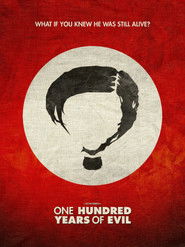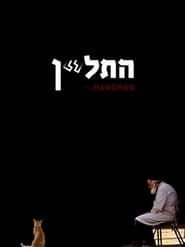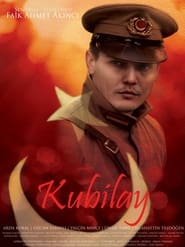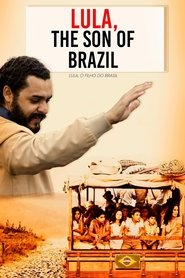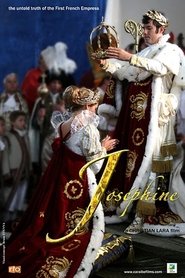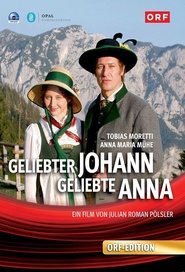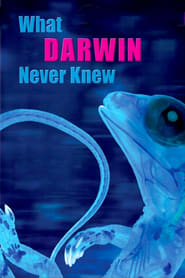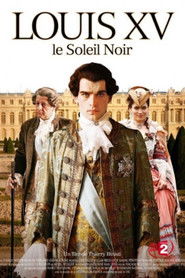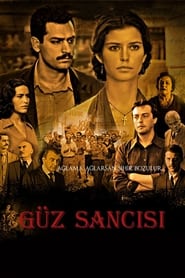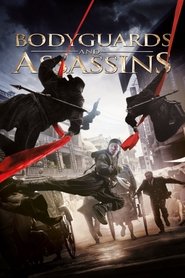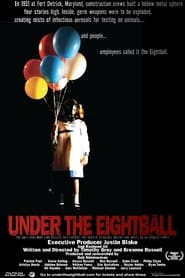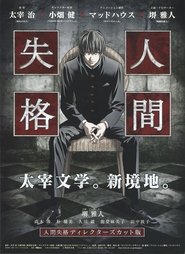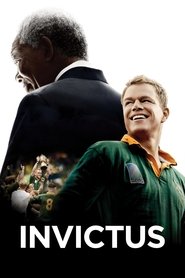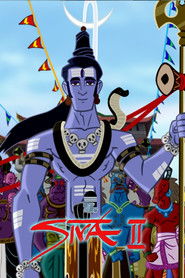New History Movies - Page 500
-
Co mogą martwi jeńcy
2010
Co mogą martwi jeńcy
2010
A documentary about the modern controversy between Poland and Russia over Russian prisoners of war from the time when Poland regained its independence, after the First World War. -
Who Killed Chea Vichea?
2010
WHO KILLED CHEA VICHEA? is a highly charged murder mystery, a political thriller, and a documentary like no other. In 2004, Cambodian union president Chea Vichea was assassinated in broad daylight at a newsstand in Phnom Penh. As international pressure mounted, two men were swiftly arrested and convicted of the crime, each sentenced to twenty years in prison. Filmmaker Bradley Cox’s five-year investigation reveals an elaborate cover-up that reaches the highest echelons of Cambodian society. Winner of a 2011 Peabody Award among many other honors and banned by the Cambodian government, WHO KILLED CHEA VICHEA? uncovers the face of dictatorship behind the mask of democracy. -
One hundred years of evil
2010
star 4.5Did Adolf Hitler survive WWII and live on under an assumed identity? Norwegian researcher Skule Antonsen sides with Spanish documentary filmmaker Idelfonso Elizalde to follow in the footsteps of Adolf Munchenhauser, a Hitler look alike captured by the Allied forces in Berlin 1945. When Munchenhauser is released from Camp Rebecca in 1946, a secret prison camp in the Nevada Desert, he decides to stay in the U.S. Skule digs into Munchenhausers life and hears a lot of stories, but none of them reveal his real identity. Is it possible that Adolf Munchenhuser really was Adolf Hitler? As Skule digs deeper for the truth it becomes clear that there are powerful forces that will do anything to stop him. -
Hatalyan (The Hangman)
2010
star 6The life of Shalom, The Nazi major officer Adolf Eichmann's hangman, turned ritual slaughterer, encapsulates the story of Israel from the perspective of the 'other'- the marginalized Sephardi prison warden who is forced to do the dirty work of hanging the arch enemy and thus to carry a national burden that dramatically shaped his life. His job in the abattoir, together with his memories of his past, create a fascinating and complex portrait. His voice, yet unheard, from the edge of Israel's historical events, reveals new insights through his unique perspective. Shalom's clear, alternative voice from the margins of society carries a deeply humanistic universal message. -
Kubilay
2010
Kubilay
2010
star 3Kubilay is a young teacher. He has come to the district of Menemen in Izmir as a second lieutenant to do his military service. Dervish Mehmet, who proclaims himself the Mahdi, and his men, guided by Sheikh Esat and Laz Ibrahim, go to Manisa to start a new uprising. On their way to Manisa, Çakır Ramazan escapes from the group. Thinking that he will report them, Derviş Mehmet decides to start the uprising in Menemen. Upon hearing this, Ragıp Bey asks Kubilay, who knows the people of Menemen, to look into the matter. -
Lula, the Son of Brazil
2010
star 5.5The true story of a working class boy who moves to the nation's financial capital at a young age and becomes one the most influential politicians in Brazilian history. -
Le mystère Joséphine
2009
Le mystère Joséphine
2009
-
Anna and the Prince
2009
Anna and the Prince
2009
star 3.3Archduke Johann falls in love with Anna Plochl, the postmaster's daughter. Johann and his royal arranged bride both decline a dynastic alliance advised by minister Metternich in favor of their loves. -
What Darwin Never Knew
2009
star 9Earth teems with a staggering variety of animals, including 9,000 kinds of birds, 28,000 types of fish, and more than 350,000 species of beetles. What explains this explosion of living creatures—1.4 million different species discovered so far, with perhaps another 50 million to go? The source of life's endless forms was a profound mystery until Charles Darwin brought forth his revolutionary idea of natural selection. But Darwin's radical insights raised as many questions as they answered. What actually drives evolution and turns one species into another? To what degree do different animals rely on the same genetic toolkit? And how did we evolve? -
Louis XV, le Soleil noir
2009
star 3.6How Louis XV, a young king loved by his people, sensitive to the artistic and intellectual turmoil of his century (that of the Enlightenment), will end his reign in decay and hatred? Only fifteen years after his death, it's the Revolution. -
Pains of Autumn
2009
Pains of Autumn
2009
star 5.1When a nationalistic wealthy landowner's idealist son falls for a non-muslim prostitute, he finds himself in a conflict between his feelings and politics under the shadow of the events of September 6th-7th in 1955, the Istanbul Pogrom. -
Bodyguards and Assassins
2009
star 6.8In 1905, revolutionist Sun Yat-Sen visits Hong Kong to discuss plans with Tongmenghui members to overthrow the Qing dynasty. But when they find out that assassins have been sent to kill him, they assemble a group of protectors to prevent any attacks. -
Under the Eightball
2009
Under the Eightball
2009
In 1951 at Fort Detrick, Maryland, construction crews built a hollow metal sphere four stories high. Inside germ weapons were to be exploded, creating mists of infectious aerosols for testing on animals....and people. Employees called it the eight ball. In their eighteen month long journey Grey and Russell travel the country in search of answers and interview top experts in the world of Lyme and Tick-Borne Diseases. Under the Eight ball includes live footage, historical documents, original animation and archival military footage. -
The Book of Ruth: Journey of Faith
2009
star 8.5The Book of Ruth, is a triumphant love story in the face of adversity. This selfless journey of love and devotion is seen through the eyes of a young widow. Choosing to leave her homeland of Moab, she follows her mother-in-law Naomi to Israel after the death of her husband. Upon reaching Bethlehem, she meets and marries a man named Boaz, who is of the Royal House of Judah. This chain of seemingly unrelated events, sets the stage for the future kings of the nation of Israel, and the glorious coming of the Messiah. A Biblical Cinderella story from the archives of the royal Jewish bloodline, this story reveals the redemption of their inheritance through the child Obed, who was the grandfather of King David. -
The People Speak
2009
The People Speak
2009
star 7.2A look at America's struggles with war, class, race and women's rights. based on Howard Zinn's "A People's History of the United States." -
Jim Henson: His Sesame Street Story
2009
star 2This look at the contributions of Jim Henson and his early Sesame Street collaborators (including Frank Oz, Fran Brill, and Caroll Spinney) shows what made the Muppets such an integral part of the beloved show. This program is packed with rare clips from TV specials, guest appearances on talk and variety shows, and much more. -
Ningen Shikkaku: Director's Cut-ban
2009
star 6.5A theatrical film version of Madhouse's Aoi Bungaku Series anime. The film will re-edit the four episodes based on Osamu Dazai's No Longer Human (Ningen Shikkaku) novel, which have character designs inspired by manga artist and novel illustrator Takeshi Obata. This "director's cut" will include new "navigation" footage which is being created specifically for the film with narrator Masato Sakai. -
Invictus
2009
Invictus
2009
star 7.2Newly elected President Nelson Mandela knows his nation remains racially and economically divided in the wake of apartheid. Believing he can bring his people together through the universal language of sport, Mandela rallies South Africa's rugby union team as they make their historic run to the 1995 Rugby World Cup Championship match. -
Todos los cuerpos
2009
Todos los cuerpos
2009
Argentina. 1977. Ministry of Economy. Physical bodies disappearing. Informational bodies hijacked. Acts of love and resistance. Institutional misunderstandings that persist. -
Tales of Siva 2
2009
Tales of Siva 2
2009
A grandmother sheds light on a few stories of Lord Shiva to her naughty grandchildren, kicking it off with the great grand wedding of Shiva and Parvati in the history of time.
 Netflix
Netflix
 Amazon Prime Video
Amazon Prime Video
 Apple iTunes
Apple iTunes
 Apple TV Plus
Apple TV Plus
 Disney Plus
Disney Plus
 Google Play Movies
Google Play Movies
 Paramount Plus
Paramount Plus
 Hulu
Hulu
 HBO Max
HBO Max
 YouTube
YouTube
 fuboTV
fuboTV
 Peacock
Peacock
 Peacock Premium
Peacock Premium
 Amazon Video
Amazon Video
 The Roku Channel
The Roku Channel
 AMC+
AMC+
 Kocowa
Kocowa
 Hoopla
Hoopla
 The CW
The CW
 Vudu
Vudu
 Starz
Starz
 Showtime
Showtime
 PBS
PBS
 Pantaflix
Pantaflix
 FXNow
FXNow
 Tubi TV
Tubi TV
 Kanopy
Kanopy
 Comedy Central
Comedy Central
 Crunchyroll
Crunchyroll
 Microsoft Store
Microsoft Store
 Redbox
Redbox
 Sun Nxt
Sun Nxt
 ABC
ABC
 DIRECTV
DIRECTV
 Crackle
Crackle
 Fandor
Fandor
 Plex
Plex

